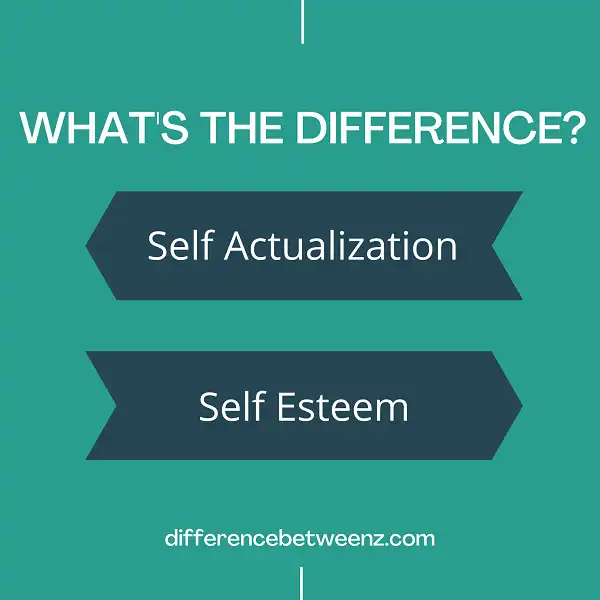Self-actualization and self-esteem are both important aspects of personal development, but they are not the same thing. Self-actualization is about achieving your full potential as a person, while self-esteem is about feeling good about yourself. Both are important, but you should focus on self-actualization if you want to achieve your goals in life.
What is Self-Actualization?
- Self-actualization is a term that was first used by psychologist Abraham Maslow in his 1954 book Motivation and Personality. Maslow proposed that self-actualization is a person’s ultimate goal in life, and he described it as the process of reaching one’s full potential. Since then, the concept of self-actualization has been further explored by other theorists, and it remains an important part of humanistic psychology.
- Self-actualization is often described as a journey or process, rather than a destination. It is a lifelong task that involves exploring one’s own potential and discovering new talents and abilities. It also involves making meaningful contributions to the world around us. In order for someone to reach self-actualization, they need to have all of their basic needs met.
- Once these needs are met, they can begin to focus on self-development and growth. Everyone has the potential to reach self-actualization, but few people actually do. This is because the journey requires effort, dedication, and courage. It is not always easy, but it is rewarding. Those who do reach self-actualization often report feeling more fulfilled and satisfied with their lives. They also tend to be more creative, altruistic, and resilient.
What is Self-Esteem?
- Self-esteem is a person’s overall evaluation of their own worth. It encompasses both self-confidence, which is a person’s belief in their ability to achieve goals, and self-respect, which is a person’s sense of personal dignity and worth. High self-esteem is associated with increased life satisfaction and happiness, while low self-esteem can lead to depression, anxiety, and poor physical health.
- Many factors can contribute to someone’s self-esteem, including appearance, achievements, and relationships. People with high self-esteem tend to have positive relationships and are more successful in achieving their goals. They also tend to be more resilient in the face of setbacks and view failure as an opportunity to learn and grow. People with low self-esteem often compare themselves unfavorably to others and dwell on their flaws.
- They may also have difficulty asserting themselves and may avoid taking risks. Improving self-esteem requires developing a more positive outlook towards oneself. This can be done through practices such as mindful meditation, positive affirmations, and challenging negative thoughts. By increasing self-esteem, people can improve their overall wellbeing and reach their full potential.
Difference between Self-Actualization and Self-Esteem
While self-actualization and self-esteem are both important facets of mental health, they are actually quite different from one another. Self-actualization refers to the process of developing a clear sense of who you are and what your unique talents and abilities are. It is about reaching your full potential as a human being.
Self-esteem, on the other hand, is more about how you feel about yourself. It is your opinion of your own worthiness and value. A healthy level of self-esteem is important for overall wellbeing, but it is not the same as self-actualization. Self-actualization is more about becoming the best version of yourself, while self-esteem is more about accepting and valuing yourself as you are.
Conclusion
Self-actualization is the need to fulfill our potential, while self-esteem comes from feeling good about ourselves. Self-actualization is a continuous journey, while self-esteem can be fleeting. People who are self-actualized tend to have high levels of self-esteem.


